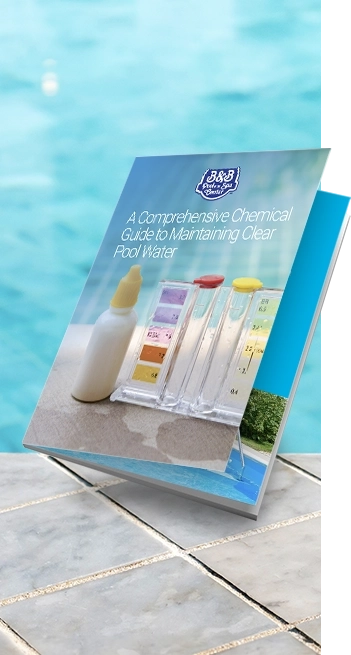Managing Algae Control
Pool Education, Pools
Algae is always present in the environment, and spores will always find a way into your pool water. Typically, algae is harmless. However, water conditions such as low chlorine, poorly-balanced pH levels, and insufficient filtration can result in massive algae blooms taking over your pool. The cleaner you keep your pool, the less often you will have an outbreak. Let’s take a look into the three main components you should address when managing algae growth.
Shock Treatment
If you have an existing bloom, shocking the pool with a high dose of chlorine will kill the current bloom. It will allow the dead algae particles to be cleared out by the filtration system. Brushing the pool walls is essential here, as small bits of algae can survive on surfaces and regrow once chlorine levels return to normal. Vacuuming and skimming the pool after that will speed up the filtration process. The filtration system should run until the water becomes clear. Testing and rebalancing will be needed along the way.
Filtration
In regular pool operation, maintaining the circulation and filtration system in your pool is vital for preventing outbreaks. The filter can clear out algae spores to prevent them from taking hold. Keeping the pool water circulating inhibits growth. During a bloom, the pool filter should run 24 hours a day until the pool is cleared. The filter will remove the dead algae and return the water to its naturally clear state. Due to the increased workload, the filter may need to be back washed afterward to unclog the filtration media.
Algaecides
Algaecides are specialized pool chemicals used to inhibit growth, either by preventing the algae from reproducing or removing chemicals, such as phosphates and nitrates, that algae need to survive. BioGuard’s Pool Juice cleaning line does just that. Within 24 hours, you will see your pool’s phosphate levels reduced and clean, clearer water. Use it in your regular maintenance routine for lasting benefits.
Added technology such as an ozone or UV sanitation system instilled into your pool can help manage algae control with less effort. These systems use friendlier methods to help reduce the overall chemical need. While all components must be inspected and kept in good condition, such as filtration; sanitation systems lower the overall time spent maintaining your pool. Although the initial cost will be high in some cases, the long-term benefit will be worth the investment.
There are many ways to prevent algae growth in your swimming pool. Each step in the process has an added benefit and works together to keep your pool clean, longer. Although it may seem tempting to ease up on pool maintenance as the summer gets underway, keeping a schedule will go far. If you have issues with algae and are unsure of the best course of action, contact a pool professional.


